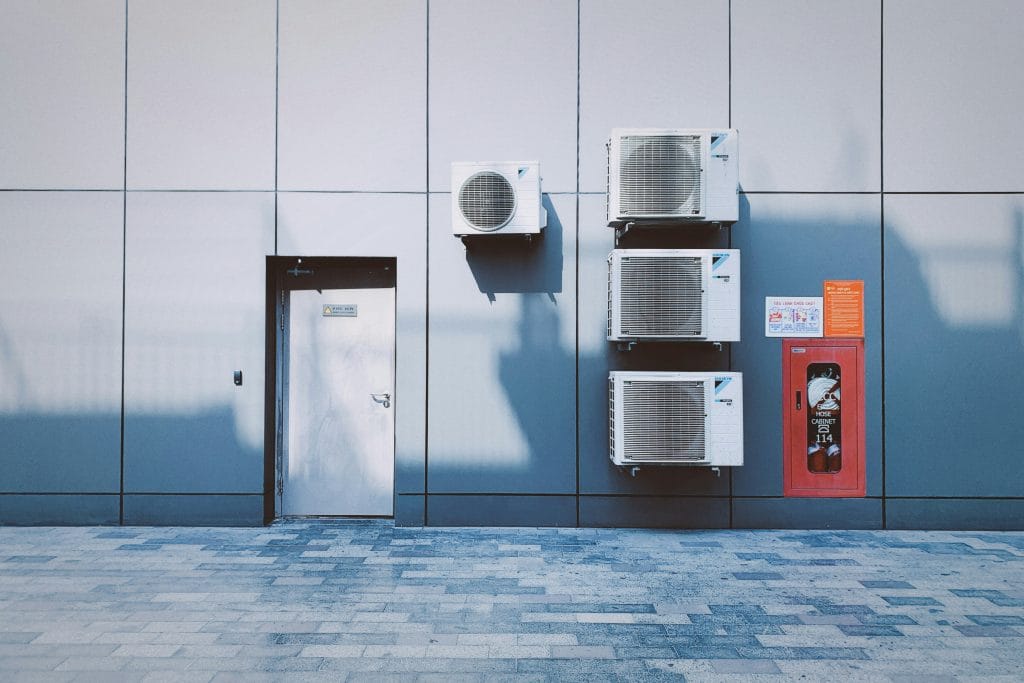What is Small Quantity Orders from China
Small quantity orders, often referred to as MOQ (Minimum Order Quantity), represent the minimum number of units a supplier from China is willing to sell. These orders are smaller than typical wholesale purchasing.
Differences Between Small and Large Quantity Orders
The primary difference between small and large quantity orders lies in the scale and pricing.
Buying in bulk gets you lower prices and better shipping deals. Smaller orders cost more per item and to ship, but they let you try new things without big risks.
Why Choose Small Quantity Purchasing
Benefits:
- Lower Financial Risk: Few money are required, making it easier to manage cash flow.
- Flexibility: Allows businesses to test the market with different products without too much resources.
- Quick Turnaround: Faster production and shipping times due to the smaller scale.
Challenges:
- Higher Costs: Per-unit costs and shipping expenses can be higher.
- Limited Negotiation Power: Smaller orders may not offer the same leverage in price negotiations.
- Supplier Reluctance: Some suppliers prefer larger orders and may not prioritize small buyers.
Small Businesses and Small Quantity Buyers
Small businesses often import in smaller quantities, have limited resources, and focus on niche markets. This allows them to be flexible and manage costs efficiently.
Characteristics of Small Quantity Buyers
Startups, boutiques, and online shops often buy small amounts. They want quality, unique items fast, not big discounts. Their orders depend on what sells, their budget, and storage space.
Why Small Businesses Opt for Small Quantity Orders
Small businesses often order in small quantities to manage costs, reduce risks, and stay flexible. This lets them offer diverse products without large upfront investments.
Products Suitable for Small Quantity Buyers
High-Value or Small-Size Products
Products that are high in value or small in size are particularly suitable for small quantity orders. Examples include electronics, jewelry, accessories, and specialized tools. These items often justify higher per-unit shipping costs due to their higher profit margins.
Niche and Interesting Products vs. Common Items
Unique items like unique handmade crafts sell better in small amounts. People pay more for special things.
Shipping Terms: FCL vs. LCL
Shipping terms like FCL (Full Container Load) and LCL (Less than Container Load). FCL is cheaper for big shipments, LCL is better for small ones.
FCL involves booking an entire container for your goods, which is cost-effective for large shipments. LCL allows multiple importers to share a container, ideal for small quantity orders.
Products that Work Well for LCL Shipping
Products that are compact, durable, and have a high value-to-weight ratio work well for LCL shipping. Examples include electronics, fashion accessories, small machinery parts, and premium household items.
Where to Find Chinese Suppliers for Small Quantity Orders
Alibaba
Alibaba is a leading platform for finding suppliers in China. It offers a vast directory of manufacturers and traders catering to various product categories. Buyers can filter searches to find suppliers that accept small orders.
DHgate and AliExpress
DHgate focuses on wholesale transactions with lower MOQs, while AliExpress caters to individual buyers and small businesses, often allowing single unit purchases.
Other Platforms for Finding Suppliers
Other platforms such as Made-in-China.com, Global Sources, and TradeKey also offer extensive supplier directories. Additionally, attending trade shows, joining industry-specific forums, and working with sourcing agents can help find reliable suppliers willing to accept small orders.
Tips for Communicating with Suppliers About Small Orders
When communicating with suppliers about small orders, be clear about your requirements, negotiate terms politely but firmly. Show them your business can grow. Good relationships lead to better deals.
How to Ship Small Quantities from China
Choosing the Right Shipping Method
International Express Services
International express services like DHL, FedEx, and UPS offer fast and reliable shipping for small quantities. They handle all logistics, including customs clearance, making them ideal for urgent or high-value shipments.
Air Freight
Air freight is suitable for shipments that are too large for express services but need faster delivery than sea freight. It balances speed and cost, making it a viable option for moderately sized orders.
LCL Sea Freight
LCL sea freight is the most cost-effective method for shipping small quantities. It shares a container with other goods, so it takes longer than air or express shipping.
Negotiating with Freight Forwarders
Choose a good freight forwarder. Find one with experience in small shipments and good reviews. Negotiate terms such as shipping rates, transit times, and any additional services like warehousing or customs clearance.
All-In-Price Shipping Services
All-in-price shipping services provide a comprehensive solution covering all costs from pickup to delivery, including customs duties and taxes. These services simplify the shipping process and offer transparency in total costs, helping small businesses manage budgets effectively.
Strategies for Consolidating Goods from Different Suppliers
Consolidating goods from different suppliers can reduce shipping costs and streamline logistics. This involves coordinating with suppliers to send goods to a central warehouse or freight forwarder for consolidation before shipping to the final destination.
Managing Costs in Small Quantity Orders
Pricing Structures for Small Orders
Pricing structures for small orders often include higher per-unit costs and shipping fees. Understanding these structures helps in budgeting and price setting for end customers.
Negotiating with Suppliers for Better Rates
Effective negotiation with suppliers can lead to better rates. Highlight long-term business potential, request discounts for bulk purchases, and explore flexible payment terms.
Balancing Product Cost with Shipping Expenses
Balancing product cost with shipping expenses is vital to maintain profitability. Opt for efficient shipping methods, consider all-in-price services, and consolidate shipments to minimize costs.
Tips for Reducing Overall Costs
To reduce overall costs, optimize order quantities, choose cost-effective shipping methods, negotiate with suppliers, and leverage economies of scale where possible. Additionally, explore local warehousing options to reduce storage and handling expenses.
Quality Control for Small Quantity Orders
Quality control is crucial in small orders to ensure customer satisfaction and minimize returns. High-quality products lead to repeat business and positive reviews.
Ensuring Product Quality
Methods for ensuring product quality include pre-shipment inspections, sample testing, and using third-party quality control services. Clear communication of quality standards with suppliers is also essential.
Dealing with Defects and Returns in Small Quantities
Handling defects and returns in small quantities requires a clear returns policy, prompt communication with suppliers, and efficient resolution processes. Consider setting aside a budget for potential returns or replacements.
Avoiding Scams and Ensuring Safe Transactions
Common Scams Targeting Small Quantity Buyers
Common scams include non-delivery of goods, substandard products, and fraudulent suppliers. Vigilance and due diligence are essential to avoid these pitfalls.
Due Diligence: Verifying Suppliers and Products
Conduct thorough research on suppliers, verify their credentials, check reviews and ratings, and request product samples. Use platforms with buyer protection policies to safeguard transactions.
Safe Payment Methods for Small Orders
Safe payment methods include using escrow services, PayPal, or credit cards that offer dispute resolution. Avoid direct bank transfers unless you have an established relationship with the supplier.
Using Escrow Services and Trade Assurance
Escrow services and trade assurance programs hold payments until goods are received and verified, providing an additional layer of security. Platforms like Alibaba offer trade assurance to protect buyers.
From Small Quantities to Larger Orders
When and How to Increase Order Quantities
Increasing order quantities should be based on market demand, financial capacity, and supplier reliability. Gradually scaling up allows businesses to manage risks and build a stable supply chain.
Building Long-Term Relationships with Suppliers
Strong supplier relationships need trust and respect. Pay on time, communicate clearly, and be honest. Visit suppliers if you can. This leads to better deals and easier business.
Transitioning from Small Quantity to Regular Importing
Transitioning from small quantity to regular importing needs planning. You need storage, good shipping, and steady cash flow to support larger orders. Watch the market and adapt as you grow.
Next Steps
In short, importing small quantities from China can be a smart move for startups and small businesses. By carefully planning and managing the process, you can test new products and enter new markets with minimal risk.
A Plan for Starting Your Small Quantity Importing Journey
To start your small quantity importing journey, follow these steps:
- Identify Your Product: Choose products that align with your business goals and market demand.
- Research Suppliers: Use platforms like Alibaba and DHgate to find reliable suppliers and request samples.
- Negotiate Terms: Communicate your requirements clearly and negotiate favorable terms with suppliers.
- Choose Shipping Methods: Select the most cost-effective and reliable shipping methods for your orders.
- Manage Costs: Keep track of all expenses, including product costs, shipping, and import duties.
- Implement Quality Control: Ensure product quality through inspections and samples.
- Build Relationships: Cultivate long-term relationships with suppliers for better terms and support.
- Stay Informed: Keep up with industry trends, regulations, and best practices to continuously improve your importing process.
Final Thoughts
Importing small quantities from China can be a game-changer for small businesses. While it comes with its own set of challenges, the rewards are substantial. By carefully selecting suppliers, managing quality, and understanding the logistics, you can tap into a world of opportunities.
If you need expert guidance, consider partnering with a sourcing agent. They can streamline the process, ensuring your products meet your standards and your business thrives.
Ready to start your importing journey? Take the first step today and unlock the potential of your business.







-300x198.png)